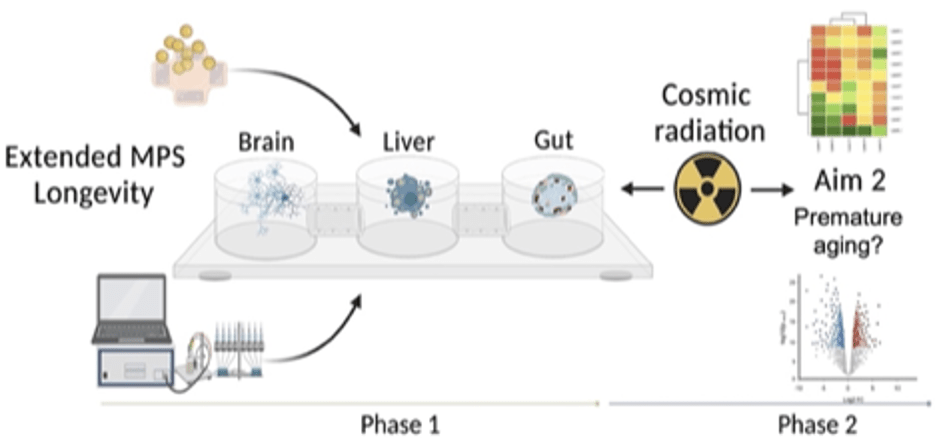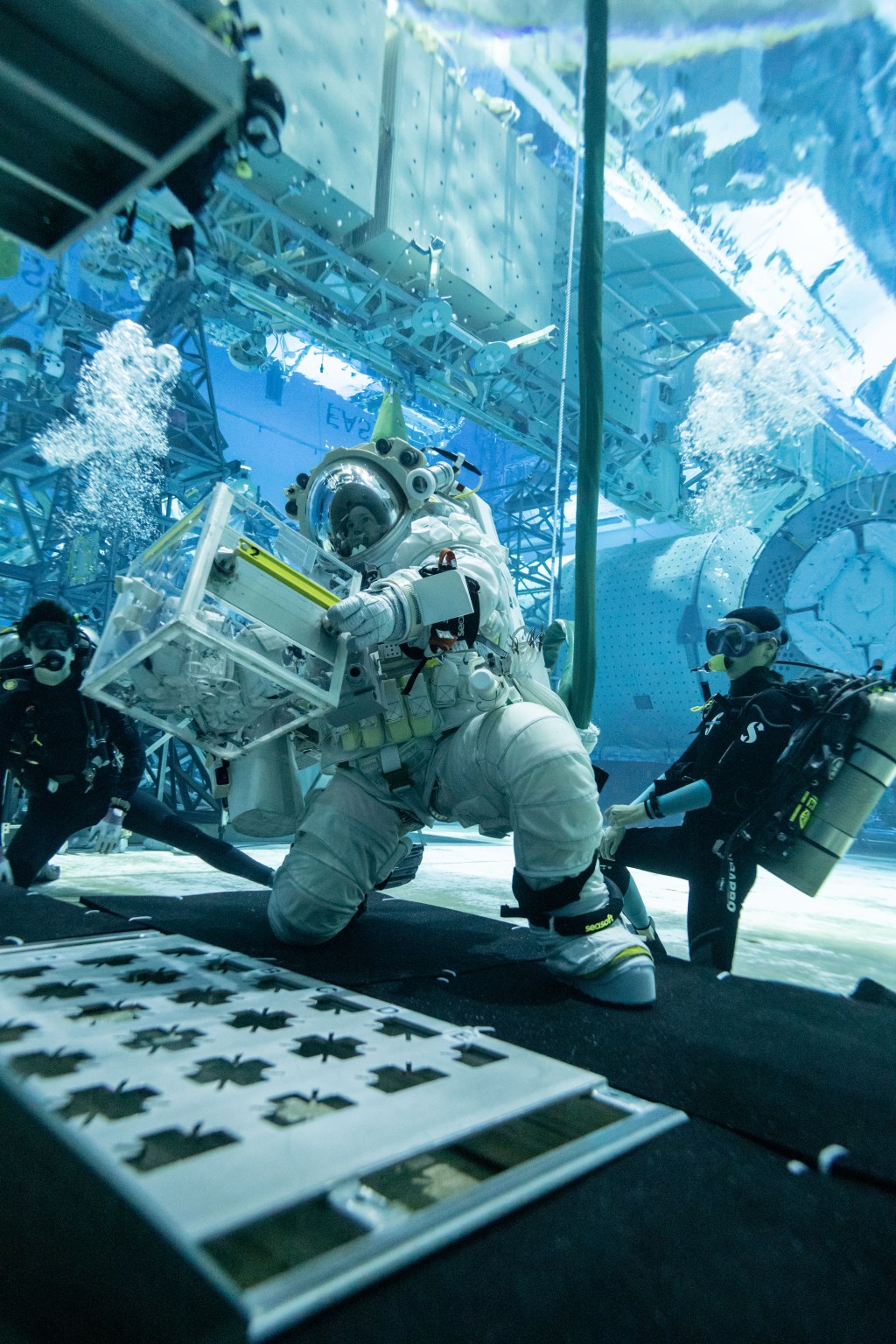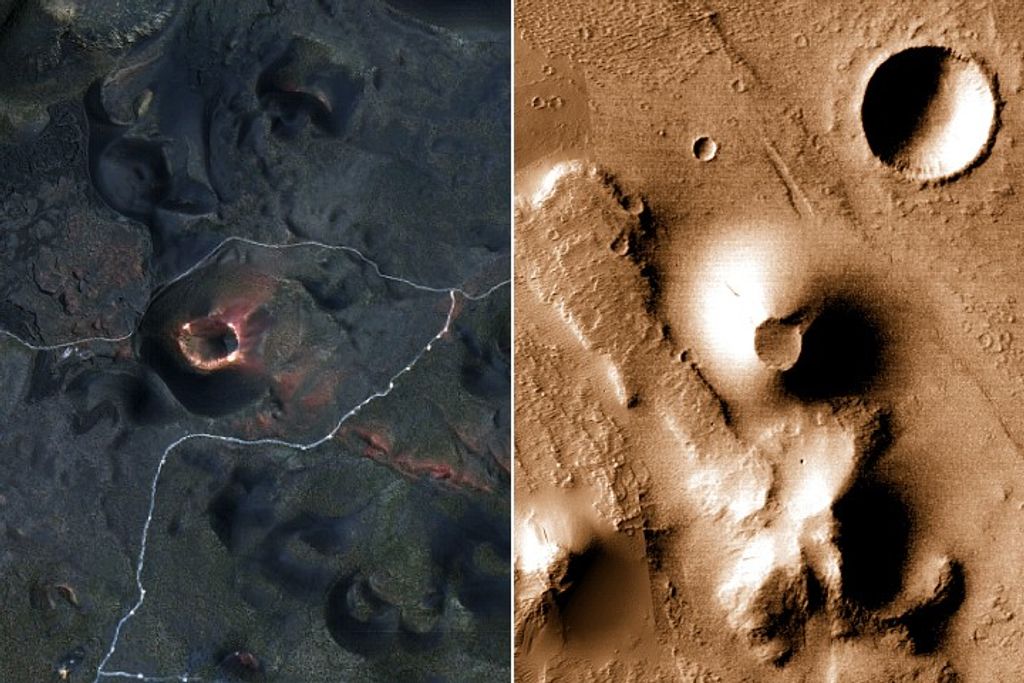Understanding the Brain-Liver-Gut Axis during Spaceflight and Aging
Science Objectives
The Understanding the Brain-Liver-Gut Axis during Spaceflight and Aging investigation aims to provide long-term, multicellular complex human tissue models for studying responses to acute and chronic spaceflight stressors that mimic deep space exploration. The proposed hardware will develop new bioengineering focused tools that aim to enable automation of biological systems for study of the impact of long-duration spaceflight on astronauts. The results of this research will enable humans to thrive in deep space and will also help researchers understand the mechanisms that accelerate aging along the brain-liver-gut axis during spaceflight and degenerative diseases on Earth.

Experiment Descriptions
Spaceflight affects multiple physiological systems including the immune, digestive, and central nervous systems (CNS). Multiple aging hallmarks, such as stem and progenitor cell senescence, mitochondrial and immune dysfunction, and systemic inflammation, have been observed during spaceflight exposure. Previous spaceflight and simulated spaceflight/deep space radiation studies have demonstrated significant degenerative alterations to the brain, liver, and gut and therefore it is paramount to identify the mechanisms leading to these shared impairments along the brain-liver-gut axis in preparation for long-duration spaceflight.
Another significant challenge in understanding human responses to prolonged spaceflight is the lack of tools to systematically dissect the simultaneous impacts of spaceflight stressors on multiple tissues in the context of homeostasis, metabolism, and inflammation. The Understanding the Brain-Liver-Gut Axis during Spaceflight and Aging investigation aims to address this challenge and gain new critical knowledge of the effects of spaceflight on human health by extending the longevity of an inter-connected multi-organ MPS, including the brain-liver-gut axis, and circulating immune populations, and by using novel biomaterials and bioengineering principles. Researchers will also study the molecular, cellular and systemic effects of spaceflight relevant acute and chronic radiation along the brain-liver-gut axis and correlate these changes to aging and age-based degenerative conditions on Earth.
Space Applications
This investigation has the potential to significantly increase understanding of how both acute and chronic radiation exposure affect the brain-liver-gut axis at the molecular, cellular, and systemic levels. This data will provide critical insight into the health of this multi-organ system during space exploration beyond low-Earth Orbit thereby aiding in NASA’s goals to enable humans to Thrive In DEep Space (TIDES). Additionally, this investigation will provide new tools to gain improved understanding on the role of oxidative stress and chronic inflammation on cellular aging during spaceflight and new tools adaptable for automated biological payloads to understand human multi-organ responses to the deep space environment.
Earth Applications
This investigation aims to lead to the development of a long-lasting multi-organ microphysiological system for simultaneously modeling human brain, liver and gut and circulating immune cells up to 6 months. This system, together with automated tools for sustaining the health of the organ models and analyzing the outcomes, will support drug screening and validation for Earth biomedicine. In addition, the impairments caused by simulated space radiation will be compared to the natural aging processes. Researchers will then examine the possible shared mechanisms. The results of this investigation will enable the development of new therapeutics to combat the degenerating effects of aging on Earth.
Team
Principal Investigator
Elizabeth Blaber, Ph.D.
Rensselaer Polytechnic Institute, Troy, New York, United States
Co-Investigators
Egle Cekanaviciute, Ph.D.
NASA Ames Research Center, Mountain View, California, United States
Cassandra Juran, Ph.D.
ASA Ames Research Center, Mountain View, California, United States
Martin Trapecar, Ph.D.
Johns Hopkins School of Medicine, Baltimore, Maryland, United States























